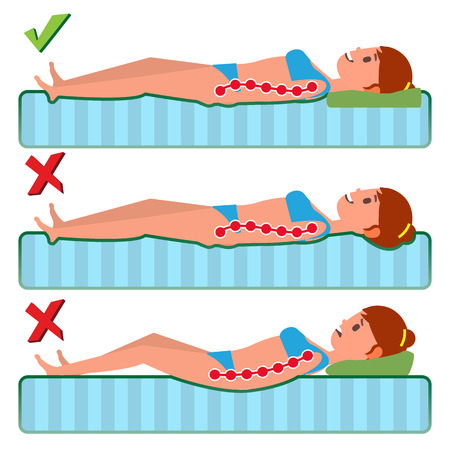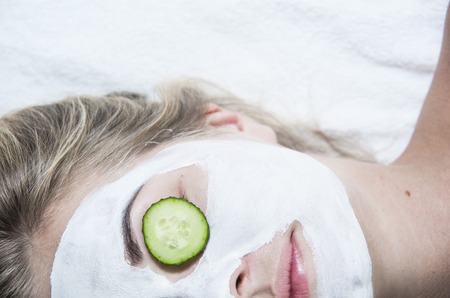The Importance of Sleep for Overall Wellbeing in the UK
Sleep has long been regarded as a cornerstone of health and happiness across British society. Whether it’s the cherished Sunday lie-in or the comfort of winding down with a cup of tea before bed, quality rest is woven into daily routines throughout the UK. However, as the nation ages, the importance of sleep becomes even more pronounced—particularly when considering its impact on overall wellbeing and skin health. In Britain, where brisk weather and busy city living can sometimes disrupt restful nights, understanding sleep’s value is vital. Not only does good sleep support mental clarity and emotional balance, but it also fortifies the immune system and helps maintain a vibrant complexion. For older adults, unique challenges such as changes in sleep patterns, increased health concerns, and the pressures of modern life can make restorative rest more elusive. As we explore the intricate relationship between sleep and skin health in an ageing UK population, it becomes clear that nurturing good sleep habits is more than just a comfort—it’s an essential act of self-care for both body and mind.
2. Understanding the Science: How Sleep Affects Skin Health
For many in the UK, particularly as we grow older, the connection between a restful night’s sleep and radiant skin is more profound than it might first appear. Let’s gently explore the biological processes that link quality sleep to skin repair, elasticity, and resilience—factors that are especially relevant to an ageing population.
The Night-time Regeneration Process
During sleep, your body enters a state of deep repair. The skin, being the largest organ, undergoes vital restorative processes overnight. Growth hormone production peaks during deep sleep stages, stimulating cell regeneration and collagen synthesis—two key elements for maintaining firm, youthful-looking skin. For older adults in the UK, where environmental stressors like colder climates and central heating can impact skin health, these nightly repairs become even more significant.
How Sleep Impacts Skin Structure
| Sleep Quality | Biological Effect | Visible Impact on Ageing Skin |
|---|---|---|
| Deep, Restorative Sleep | Increased collagen production Enhanced cellular turnover Reduced inflammation |
Smoother texture Improved elasticity Fewer fine lines |
| Poor or Interrupted Sleep | Lowered growth hormone levels Impaired barrier function Higher cortisol (stress hormone) |
Dullness Dryness Exaggerated wrinkles and sagging |
The Role of Circadian Rhythms in Skin Resilience
Your skin follows a circadian rhythm—a natural internal clock that regulates biological activities over a 24-hour period. At night, blood flow increases to the skin, allowing nutrients and oxygen to reach cells more efficiently. This is also when DNA repair is most active, counteracting some of the daily damage from UV exposure and pollution so common in urban British environments.
Why This Matters More as We Age in the UK
As we age, our bodies naturally produce less collagen and experience slower cell turnover. In addition, factors such as increased sensitivity to weather changes or reduced humidity in heated homes can further compromise skin health for older Brits. Prioritising good sleep hygiene—such as maintaining a consistent bedtime routine or keeping bedrooms cool and dark—can provide your skin with the best chance to repair itself each night.

3. Common Sleep Disruptors in the UK’s Ageing Population
As we gracefully move through the years, many in the UK find that a good night’s sleep becomes ever more elusive. Understanding what stands in the way of restful slumber is key—not only for our energy levels but also for the health and vitality of our skin. Let’s explore some of the most common disruptors uniquely affecting Britain’s ageing population.
Light Pollution: The Urban Challenge
Across bustling British cities—from London to Manchester—light pollution is a persistent intruder. Street lamps, neon signs, and even glowing electronics at home can confuse our body clocks, making it harder to fall asleep and stay asleep. As melatonin production dips due to artificial light exposure, both sleep quality and skin repair suffer, leaving us feeling less refreshed and our skin looking tired or lacklustre.
The British Weather: More Than Just a Talking Point
It’s no secret that the UK’s weather can be unpredictable, with grey skies and rain dominating much of the year. These dreary conditions can impact our circadian rhythms, especially during the winter months when daylight hours are short. A lack of natural sunlight not only affects mood but can also disrupt sleep cycles, which may contribute to dullness and dryness in mature skin.
Social Habits: Tea Time, Pubs, and Screen Use
British culture is rich with social rituals—afternoon teas, late dinners, and lively evenings at the pub. While these traditions bring joy and connection, caffeine from that late cuppa or alcohol from an evening out can interfere with deep sleep stages. In today’s digital age, increased screen time before bed has also become a widespread habit, further delaying rest and impacting overnight skin rejuvenation.
The Impact of Noise
Whether it’s the hum of traffic outside your window or early-morning deliveries on your street, noise pollution is another factor worth considering. Older adults may become more sensitive to environmental disturbances as they age, leading to frequent awakenings that interrupt restorative sleep—and by extension, hinder healthy skin regeneration.
Navigating Sleep Disruptors With Confidence
While these challenges are common across Britain, recognising them is the first step towards change. By making mindful adjustments—such as investing in blackout curtains, limiting caffeine late in the day, or creating a calming bedtime routine—you can nurture better sleep patterns and support your skin’s natural resilience. Remember: caring for your sleep is one of the kindest gifts you can give yourself at any age.
4. Visible Signs: The Impact of Poor Sleep on Ageing Skin
Sleep is often described as nature’s most powerful beauty treatment, yet many in the UK are not getting the restorative rest their skin needs. As we age, the signs of insufficient sleep become even more apparent, manifesting in ways that can impact both our appearance and self-confidence. It’s important to recognise these changes early and understand how they relate to our nightly routines.
Recognising the Symptoms
The visible effects of poor sleep are not just about feeling tired; they’re written across our faces. Let’s take a closer look at the most recognisable symptoms:
| Symptom | Description | Connection to Poor Sleep |
|---|---|---|
| Fine Lines & Wrinkles | Increased creases around the eyes and mouth; skin loses elasticity | Lack of sleep slows cell repair, reducing collagen production crucial for plumpness |
| Dullness | Skin appears lacklustre, tired, and uneven in tone | Poor sleep limits blood flow to the skin, leading to a pale or greyish complexion |
| Sensitivity | Redness, irritation, or heightened reaction to products and weather changes | Sleep deprivation weakens the skin barrier, making it more vulnerable to external stressors |
The Science Behind the Signs
When we don’t get enough quality sleep, our bodies miss out on crucial periods of regeneration. During deep sleep phases, new skin cells are produced and damaged ones repaired. Without this time to recover, our skin shows signs of fatigue and premature ageing—issues that are particularly noticeable among an ageing UK population facing colder climates and urban pollution.
Practical Observations in Daily Life
You may notice your foundation settling into lines more easily after a restless night or find yourself reaching for extra moisturiser to combat tightness and sensitivity. These small but telling changes are your body’s way of signalling a need for better rest.
A Gentle Reminder for Self-Care
If you’re seeing these signs in the mirror, don’t be disheartened. The good news is that improvements can start with simple shifts towards better sleep hygiene—think consistent bedtimes, reducing screen time before bed, and cultivating a calming evening routine. Your skin has a remarkable ability to bounce back when given the right environment to heal.
5. Practical Tips for Improving Sleep and Skin in Later Life
As we age, the importance of nurturing both our sleep and our skin becomes ever more apparent—yet, with a little kindness to ourselves and some time-honoured British habits, it’s never too late to boost our well-being. Here are some gentle, practical tips rooted in UK culture that can make a world of difference.
Embrace a Soothing Evening Routine
In the UK, there’s nothing quite like winding down with a warm cup of herbal tea. Opt for chamomile or valerian root—both favoured by generations for their calming properties. Pair your cuppa with a book or soft music, steering clear of screens at least an hour before bedtime. This classic approach helps signal to your body that it’s time to rest.
Prioritise Consistent Sleep Patterns
Bodies thrive on routine, especially as we grow older. Aim to go to bed and wake up at the same time each day—even on weekends. This aligns with the British ethos of “keeping calm and carrying on,” providing stability for your internal clock and promoting more restorative sleep.
Nourish Your Skin with Trusted Ingredients
British skincare traditions favour gentle, nourishing ingredients such as oat-based cleansers and rosewater tonics. Choose moisturisers suited for mature skin—look for products containing ceramides or hyaluronic acid, which help maintain hydration against our often brisk weather. Don’t forget a broad-spectrum SPF, even on cloudy days!
Create a Restful Sleeping Environment
Make your bedroom a sanctuary: keep it cool, quiet, and dark. Consider traditional touches like blackout curtains or an extra wool blanket on chillier nights. A lavender pillow spray—a staple in many UK households—can add a touch of soothing fragrance to help you drift off peacefully.
Stay Active and Social
Daytime activity is key for sound sleep and healthy skin. Take regular walks in your local park or join community groups—both excellent ways to stay active, connect with others, and soak up some daylight (which helps regulate your sleep-wake cycle). Remember, self-care doesn’t have to be complicated; sometimes, the most effective routines are those passed down through generations.
Treat yourself with patience and consistency as you adopt these practices—the British way isn’t about perfection but about steady progress and gentle encouragement every step of the way.
6. Looking Ahead: Creating a Culture of Rest and Self-Care in the UK
As we continue to unravel the connections between sleep, skin health, and ageing, it’s time for us in the UK to foster a more open and supportive culture around rest and self-care. Too often, our busy schedules and classic British “stiff upper lip” attitude lead us to downplay the importance of good sleep. But prioritising rest isn’t a luxury—it’s essential for maintaining both youthful skin and overall wellbeing as we age. Let’s encourage a national conversation that normalises talking about sleep challenges and celebrates self-compassion at every stage of life.
The Power of Collective Awareness
By bringing sleep and its impact on skin health into mainstream discussion—whether over a cuppa with friends or through national campaigns—we can help shift attitudes. When respected figures, from NHS professionals to local community leaders, champion the science-backed benefits of quality rest, it empowers everyone to make positive changes without feeling guilty or indulgent.
Supporting Wellbeing Across Generations
This conversation is especially vital as our population ages. Grandparents, parents, and young adults alike deserve practical tools and gentle encouragement to nurture themselves. Intergenerational support—sharing tips for winding down or reminding loved ones that rest is restorative—builds stronger communities and helps dismantle old stereotypes about “soldiering on” through exhaustion.
Your Role in the Movement
You don’t need to overhaul your entire lifestyle overnight. Start by making small, sustainable adjustments—perhaps setting aside half an hour before bed for relaxation or choosing skincare routines that soothe as well as protect. Talk openly with family, neighbours, or colleagues about the value of sleep. By modelling self-compassion and advocating for restful routines, you become part of a wider cultural shift towards lifelong wellbeing across Britain.
Let’s move forward together—empowered by science, united in kindness, and committed to making rest a respected part of everyday life in the UK. Your skin, your mind, and your future self will thank you.


